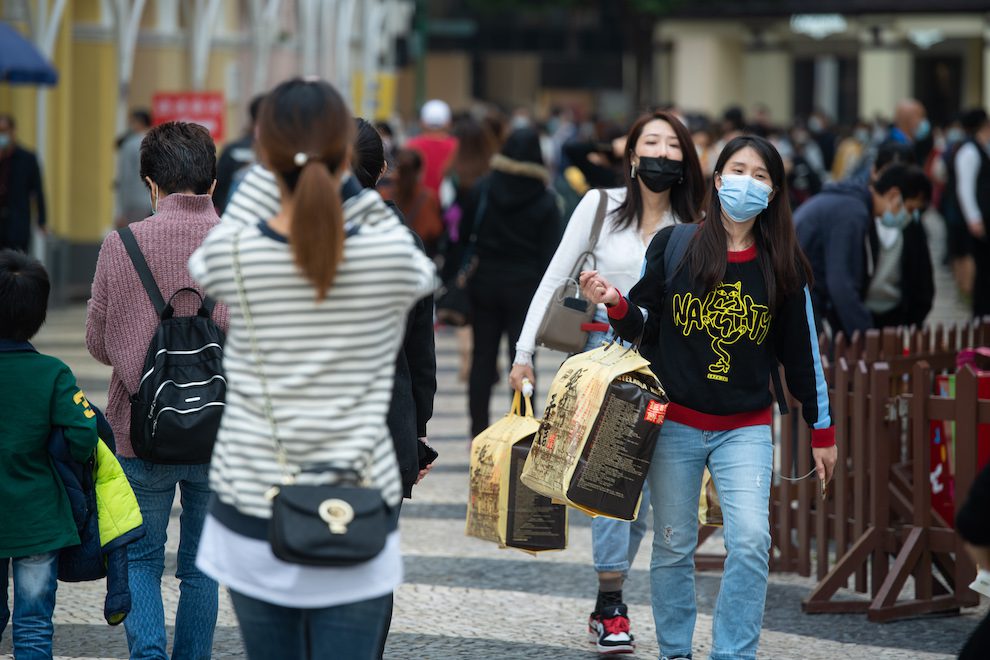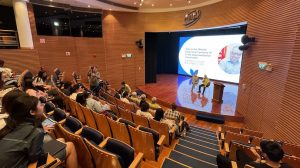Availability of holiday packages, positive word of mouth, and time used in searching for related travel information, are factors that can contribute to lengthened visitor stay at a destination, says a new research paper. The study, involving an IFTM scholar, was based on a survey of Chinese tourists to Macao.
The research additionally concluded those people staying longer in Macao were typically repeat visitors, and were travelling in large groups. “Repeaters tend to appreciate familiarity with the destination and prolong their stay accordingly,” the study stated.
The work was produced by IFTM Assistant Professor Dr. Ali Bavik, in partnership with Portugal-based scholar Dr. Antónia Correia, and Dr. Metin Kozak from Dokuz Eylul University, in Turkey. Their paper, titled “What makes our stay longer or shorter? A study on Macau”, was published last year on the online version of the Journal of China Tourism Research.
The study actually found a negative link between the length of stay and tourist average daily spending: visitors making a longer stay tended to spend less per person on a daily basis, it concluded.
“Unlike what the industry professionals would desire, first-time tourists may stay a shorter time but may also consider spending more money while on holiday,” the researchers wrote. “As short stays lead to an increase in the amount of tourist spending, they can be encouraged; and first-time tourists in larger groups can be specified as a target market.”
The study results were based on a survey answered by 847 Chinese tourists visiting Macao. The duration of each tourist’s stay was measured by the number of nights at the destination.
Keys for high length of stay
The researchers suggested that local authorities should give “more attention” to availability of holiday packages, positive word of mouth, and the time spent by visitors searching for related travel information. That was to enhance “a positive perception by tourists” of the destination, in order ultimately to increase visitor length of stay in Macao.
“We recommend arranging more and more extended packages to boost length of stay,” the researchers wrote. Their results showed a “positive and significant effect” between the 2 variables, suggesting that Chinese tourists often decide the duration of their vacations in Macao in accordance with the packages available.
The results of the research pointed to a “positive relationship” between search time and length of stay. The data collected showed a “significant effect” suggesting that the greater the time dedicated by a visitor to research on a destination, the longer the duration of their eventual holidays in that destination.
“We suggest government authorities and hoteliers increase and vary their information and communication channels with their existing and potential customers,” said the researchers. They pointed to the need to keep up with the fast-paced development of new technologies in this area.
“Specifically, we recommend increasing the 360° videos [and] virtual-reality technology, which potentially help to provide enriching information, reduce the service gap, and increase tourist involvement with the destination and its products,” the research authors wrote.
The study also found positive impacts on length of stay arising from, respectively, good service and positive word of mouth. “We suggest service providers maintain and improve service quality and employee training,” the researchers said.
More info
Dr. Antónia Correia is a professor of tourist behaviour and tourism economics at the University of Algarve, in Portugal. She is also dean at the tourism, sports and hospitality school in Universidade Europeia, also in Portugal. Dr. Correia has a doctorate in applied economics from the University of Algarve. Her research interests cover consumer behaviour and tourism economics.
Dr. Metin Kozak is a professor of marketing in the School of Tourism at Dokuz Eylul University in Turkey. He holds a PhD in tourism management from Sheffield Hallam University, in the United Kingdom. His research focuses on consumer behaviour, benchmarking, destination management and marketing, and sustainability. He acts as the co-editor of Anatolia: An International Journal of Tourism and Hospitality Research. Dr. Kozak has been a visiting scholar to various universities respectively in the United States, Europe and Asia.
https://doi.org/10.1080/19388160.2020.1745346









